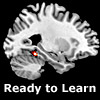Session Overview

|
How do we learn? How do the things we learn help us to survive and successfully interact with our environment? In this session, we will examine different types of learning, from classical conditioning to more complex models of learning, and how they fit into our everyday lives. Related concepts like learned helplessness and delayed gratification will also be examined. Keywords: classical conditioning, operant conditioning, Ivan Pavlov, extinction, generalization, Little Albert, learned helplessness, E. L. Thorndike, delayed gratification Courtesy of Julie Yoo. Used with permission. |
Session Activities
Readings
Read the following before watching the lecture video.
- One of the following textbook chapters:
Lecture Videos
View Full Video
View by Chapter
- Pavlov and Learning Through Conditioning
- Operant Conditioning, Thorndike’s cat, and Little Albert
- Reinforcement and Learned Helplessness
- Limits of Conditioning
- Reward Value and Delayed Gratification
- Is Language Learning a Conditioned Skill?
Video Resources
Discussion: Learning
Habituation is when repeated exposure to a stimulus decreases an organism’s responsiveness to the stimulus. What are some things in life that we experience over and over again and react less and less to? What’s an example of habituation in real life?… Read more »
Check Yourself
Example 1:
In a study by Lewicki (1985) students had a brief interaction with a female experimenter that had short hair and glasses. After the students asked the experimenter a question she responded either in a negative way or a neutral way. Afterword the students had to approach one of two other experimenters in a different room. One experimenter shared more physical characteristics with the first experimenter and the other shared fewer characteristics with the first experimenter. Students were more likely to avoid the experimenter ion the second room that resembled the first when the first responded negatively to their question.
Example 2:
In the case of Pavlov’s dog, the dog learned to salivate when the dog heard a specific tone, but not similar tones that were never directly associated with food. Name and explain the two psychological processes that describe the situation in both example studies. Come up with another example of each of the two psychological processes.
› Sample Answer
The first study is an example of generalization. This is when a person or animal learns to respond to stimuli that resemble the original conditioned stimulus. Generalization allows a person or animal to predict that situations similar to the stimulus that was originally associated with an outcome will yield the same results.
The second study is an example of discrimination. This is when even though the new stimuli are similar to the conditioned stimulus, people and animals can tell that they are different enough to not yield the same outcome. This allows people or animals to predict that situations similar, but different to the stimulus that was originally associated with tan outcome will yield different results.
One example of generalization is being rewarded for doing a great job on your homework and generalizing to all situations that require effortful work on your part. You then expect to be rewarded in other similar situations that require work. One example of discrimination is leaning to shake hands when you first formally meet someone in one culture, but realizing the same situation in another culture may not require shaking hands.
Further Study
These optional resources are provided for students that wish to explore this topic more fully.
| TYPE | CONTENT | CONTEXT |
|---|---|---|
| Supplemental reading | An online version of Thorndike, E. Animal Intelligence: Experimental Studies. The Macmillan Company, 1911. Accessed via “Classics in the History of Psychology” by C. Green. | Book written by Thorndike touching on several topics discussed in lecture |
| Textbook supplement | Study materials for Ch. 6 “Learning: How Experience Changes Us.” In Kosslyn & Rosenberg, Psychology in Context, 3/e (Pearson, 2007) | Practice test questions, flashcards, and media for a related textbook |








